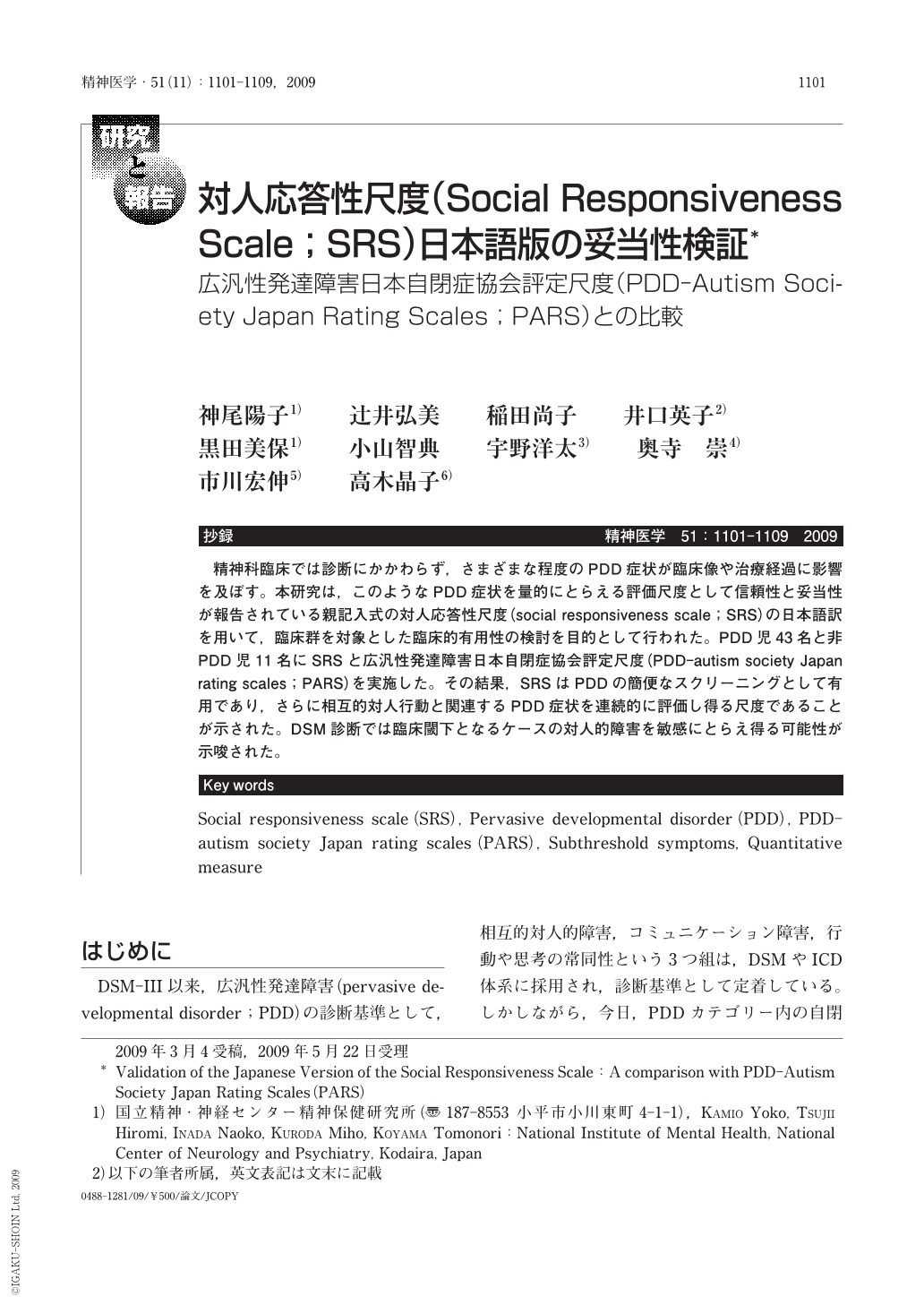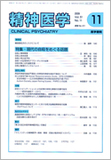Japanese
English
- 有料閲覧
- Abstract 文献概要
- 1ページ目 Look Inside
- 参考文献 Reference
- サイト内被引用 Cited by
抄録
精神科臨床では診断にかかわらず,さまざまな程度のPDD症状が臨床像や治療経過に影響を及ぼす。本研究は,このようなPDD症状を量的にとらえる評価尺度として信頼性と妥当性が報告されている親記入式の対人応答性尺度(social responsiveness scale;SRS)の日本語訳を用いて,臨床群を対象とした臨床的有用性の検討を目的として行われた。PDD児43名と非PDD児11名にSRSと広汎性発達障害日本自閉症協会評定尺度(PDD-autism society Japan rating scales;PARS)を実施した。その結果,SRSはPDDの簡便なスクリーニングとして有用であり,さらに相互的対人行動と関連するPDD症状を連続的に評価し得る尺度であることが示された。DSM診断では臨床閾下となるケースの対人的障害を敏感にとらえ得る可能性が示唆された。
There is a paucity of evaluative tools for quantitatively measuring the symptoms of pervasive developmental disorders (PDD) in Japanese clinical settings. The social responsiveness scale (SRS) has been previously reported to be a reliable and valid quantitative measure of autistic traits in a general child population as well as in clinical settings. In this study, we examined the construct and concurrent validity of the Japanese version of the SRS. In a psychiatric clinical population, the 65-item SRS was administered to 43 children with PDD and 11 children without PDD by their parents. The results showed that the total scores on the SRS were significantly higher for children with PDD than for children without PDD. Furthermore, the SRS was compared with the PDD-autism society Japan rating scales (PARS), which has been validated and is widely used in Japanese clinical settings. The total scores ranging from 0.48 to 0.86. The present findings indicate that the SRS is a valid quantitative measure that is feasible for detecting covert but serious PDD symptoms in PDD symptoms in subthreshold children in clinical settings as well as in high-functioning children with PDD.

Copyright © 2009, Igaku-Shoin Ltd. All rights reserved.


